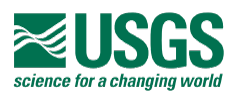North Atlantic LCC Demonstration Project: Marsh Migration
North Atlantic LCC Demonstration Project: Integrating Science into Policy - Local Adaptation for Marsh Migration
Coastal marshes serve a variety of important functions including flood control, spawning/rearing areas for marine life, and critical habitat for many bird species of conservation concern. The focus of this project was to facilitate local actions in Maine to accommodate the needs of coastal marshes to migrate landward in response to rising sea levels.
Coastal marshes serve a variety of important functions including flood control and spawning/rearing areas for marine life. These marsh systems are also critical breeding, wintering, and migratory stop-over sites for many avian Species of Greatest Conservation Need as identified in state wildlife action plans throughout the North Atlantic LCC region. Providing and maintaining potential for these tidal marsh habitats to migrate is a key approach for long-term adaptation to the more frequent and severe coastal flooding and gradual sea level rise anticipated under changing climatic conditions.
Work completed under this NALCC Demonstration Project included identification of the most resilient marshes in Maine (based on habitat size, diversity of marsh communities present, and migration potential, etc.); utilization of LiDAR to identify lands capable of supporting intertidal communities based on several sea level rise scenarios; and development of outreach materials for local planners and conservation partners. However, the focus of the project was to facilitate local actions necessary to accommodate future marsh migration needs though local land use policy and local conservation investment.
Local partners were engaged initially through regional meetings where climate change associated stressors to intertidal wetlands were presented together with simulations of marsh migration needs based on ground-truthed, LiDAR-based simulations. A subsequent request for proposals enabled potential partners to self-select for on-site technical assistance in crafting locally tailored adaptation approaches.
Read the original project proposal.
LCC Staff Contact: Steve Fuller
Outreach of the product included presenting information at more than 20 public meetings, community forums and statewide meetings. Six towns served as case studies: Bath, Bowdoinham, Georgetown, Phippsburg, Scarborough, and Topsham. These towns are engaged in planning and will be using MAST as part of that process.
The final report (below) was submitted to the State of Maine in July 2014.
The Maine Coast Heritage Trust hosted a one-day meeting and workshop, "Integrating Scenario-Based Sea Level Rise Data Into Conservation Planning" (agenda) in April 2014.
This project is complete.
Quarterly Reports
2014 July-September Quarterly Report - Marsh Migration
2014 April-June Quarterly Report - Marsh Migration
In the News...
North Atlantic LCC: $20,000
Also includes more than $200,000 in funding from other sources.
| Project ID | NALCC_2012_03 |
|---|---|
| Start Date: | October 01, 2012 |
| End Date: | December 31, 2013 |
Final Report: Strategic Marsh Adaptation: Creating and Testing a New Decision-Support Tool
Town of Bowdoinham Comprehensive Plan (2014)
Real Estate Impacts of Potential Flooding in the Waterfront Park are of Bath ME (2013)


























